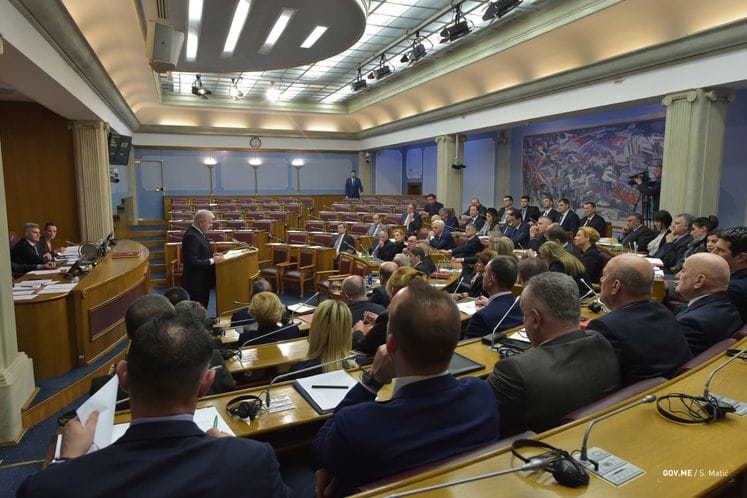- Government of Montenegro
Questions to the Prime Minister session: Effects o...
Please note: The page below represents the archived content relating to the previous Government of Montenegro. Some of the information might be inaccurate or outdated.
Archive
Questions to the Prime Minister session: Effects of fiscal consolidation measures

Published on: Mar 29, 2017 • 10:26 PM Author: PR Service
Podgorica, Montenegro (29 October 2014) – Questions to the Prime Minister session was held earlier today at the Parliament of Montenegro, where PM Marković faced the questions from MPs.
Miodrag Radunović, on behalf of the Caucus of the Democratic Party of Socialists, asked Prime Minister Marković to assess the economic and financial situation at the end of the first quarter of 2017 and the effects of fiscal consolidation measures adopted by the Government late last year.
“We are satisfied with the consolidation measures in the previous period of 2017. Revenue side of the budget in the period from 1 January to 24 March 2017 amounted to EUR 262.6 million, and we expect the plan to be fully implemented by the end of March,“ the Prime Minister explained, adding that exceeding the plan is expected on the basis of the revenues from excise duties and taxes on international trade and transactions.
Revenues from fees and benefits will also be higher than planned, while the revenue from VAT and taxes on personal income, as the highest-yield category, is expected to be at the planned level, PM Marković underlined. On the expenditure side of the budget, the Government also managed to reduce certain expenditure items, he added.
Prime Minister Marković noted that the implementation of major development projects and investments are underway in the fields of agriculture and tourism.
“Credible foreign investors voice interest in investing in key sectors almost on a daily basis,“ said PM Marković.
In his words, Montenegro needs higher growth rates to bring its citizens closer to the living standards of European countries.
"The first step of the new government in this direction was to propose the plan for the reduction of the budget deficit and public debt for the period 2017 - 2021. Plan's fiscal consolidation measures include balancing this year's budget, i.e. financing the current consumption from the source of income," PM Marković underlined.
Recovery plan contains an optimal combination of economic policy measures aimed at strengthening fiscal stability, continuing sustainable economic growth and preserving adequate levels of social protection of the most vulnerable citizens.
"Fiscal consolidation measures are expected to result in savings of EUR 126.9 million, or about 3.2% of GDP in 2017. This will contribute to reducing the budget deficit for this year by 6.1 percent of GDP. Without these measures, it would total around 9%," emphasised PM Marković.
According to him, the savings achieved through fiscal consolidation measures will ensure the regularity of paying out pensions, social benefits and all other payments prescribed by the budget.
"These measures should slow down the growth of public debt by 2019. After the completion of construction of the first section of the motorway, the public debt is expected to experience a downward trend in relation to GDP," the Prime Minister stressed.
Achievement of the projected rate of economic growth by 3.2% in 2017 is based on the gross investments amounting to EUR 1.2 billion, which should contribute to increasing GDP per capita to approx. EUR 6,300.
"Therefore, by monitoring the implementation of fiscal consolidation measures, the Government works hard towards eliminating all barriers that hinder the implementation of the ongoing and attracting new investments in order to quickly create conditions for dynamic economic growth and employment.
Related articles:
Parliament to decide on disposal of state property Mar 28, 2025
Press release from the Office of the Prime Minister Mar 28, 2025
Press release from the 74th Cabinet session Mar 27, 2025
Is this page useful?
